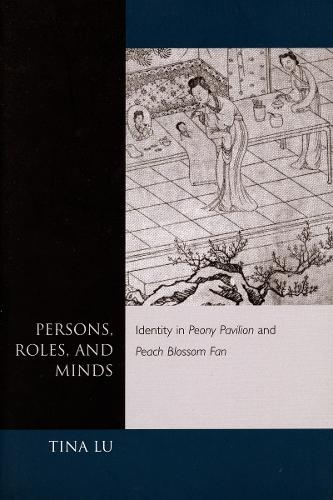Overview
Focusing on two late-Ming or early-Qing plays central to the Chinese canon, this study explores crucial questions concerning personal identity. How is a person, as opposed to a ghost or animal, to be defined? How can any specific person (as distinguished, for example, from an impostor or twin) be identified? Both plays are chuanqi, representatives of a monumental genre that represents Chinese dramatic literature at its most complex: Tang Xianzu s Peony Pavilion is a romantic comedy in 55 acts, and Kong Shangren s Peach Blossom Fan narrates the fall of the Ming Dynasty in 40 acts. No reader of Chinese literature would find a sexual encounter between a young man and a female ghost surprising. In Peony Pavilion, however, the lovers actually marry and join human society a possibility that invites speculation on the nature of personhood and agency. By contrast, Peach Blossom Fan addresses the question of identity in an explicitly political fashion. After the fall of Beijing, many men put forward imperial claims. Who, in a time of turmoil, is truly the Emperor? In a Confucian society, where hierarchy and identity are so interdependent, how does the lack of certainty about the Emperor s identity affect all human identities?
Full Product Details
Author: Tina Lu
Publisher: Stanford University Press
Imprint: Stanford University Press
Edition: New edition
Dimensions:
Width: 15.20cm
, Height: 2.10cm
, Length: 22.90cm
Weight: 0.526kg
ISBN: 9780804742023
ISBN 10: 0804742022
Pages: 376
Publication Date: 01 July 2002
Audience:
College/higher education
,
Professional and scholarly
,
Undergraduate
,
Postgraduate, Research & Scholarly
Format: Paperback
Publisher's Status: Active
Availability: To order

Stock availability from the supplier is unknown. We will order it for you and ship this item to you once it is received by us.
Reviews
...the main news about this book is that it is a solid, learned, perceptive, coherent, and information-packed study of Ming and Qing drama that will amply reward the time of any reader interetsed in the cultural, intellectual, and esthetic history of late imperial China. - Eric Henry, University of North Carolina This is an original and thought-provoking study. - Bulletin of the School of Oriental and African Studies
'This is a completely new, unique study of the problems of personal identity, moral purpose, human nature, and the borders of identity in Chinese fiction and culture. But the importance of the book goes well beyond a study of person and personages. It offers a heady and substantial discussion of the theatrical nature of the two texts studied and the issue of performative roles and personal identity. It is perhaps the most significant book in English on Chinese dramatic literature.' Stephen H. West, University of California, Berkeley
""...the main news about this book is that it is a solid, learned, perceptive, coherent, and information-packed study of Ming and Qing drama that will amply reward the time of any reader interetsed in the cultural, intellectual, and esthetic history of late imperial China."" - Eric Henry, University of North Carolina ""This is an original and thought-provoking study."" - Bulletin of the School of Oriental and African Studies
Author Information
Tina Lu is Assistant Professor of Chinese Literature at the University of Pennsylvania.



